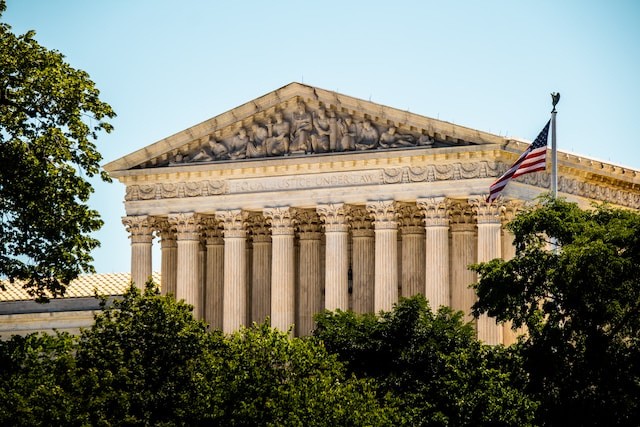Emerging from the residential stretches of Oregon City, the issue of anti-camping laws has garnered national attention. The U.S. Supreme Court is willing to bear the appeal filed by Grants Pass, a city grappling with ordinances against public camping. This marks the beginning of a legal tussle that draws into the frame the ever-pertinent crisis of homelessness, a matter of deep concern weighing on the conscience of municipalities far and wide.

The bone of contention is the ordinances that deem camping on public properties like sidewalks, streets, parks, etc., unlawful. A lower court has declared that this violates the U.S. Constitution's Eighth Amendment prohibiting "cruel and unusual" punishment.
"Cruel and Unusual" Punishment?
Three homeless plaintiffs draw the thread that connects the Eighth Amendment to the anti-camping laws. They filed a class-action complaint in 2018 against Grants Pass, holding that these laws transgress the Eighth Amendment. Violating these could result in civil penalties, exclusion from city properties, and even trespassing charges.
Notably, the city houses between 50 and 600 homeless individuals and struggles with insufficient shelters. Theane Evangelis, the attorney representing Grants Pass, is eager to place these facts before the court.
Are Cities' Hands Tied in Addressing Homelessness?
Evangelis strongly contests the 9th U.S. Circuit Court of Appeals decisions based in San Francisco and a similar one in Idaho. In her view, these rulings are legally flawed and relate to the growing issue of encampments in Western cities. She believes these decisions hamstring local administrations' endeavors to find timely, effective resolutions for the burgeoning homelessness crisis.
Endorsement for the appeal has poured in from numerous Western cities and states, the same jurisdictions where the 9th Circuit decision holds sway.
A Matter of Rightful Existence?
The Director of Litigation at the Oregon Law Center, Ed Johnson, and among those representing the plaintiffs in their challenge of the ordinances, frames the dispute as one balancing on a fundamental question. He asks whether it's justifiable for cities to penalize homeless inhabitants merely for their lack of shelter access.
A Fair Fight for Homeless Rights
To counteract the impact of these anti-camping laws on the homeless, the legal support of an experienced lawyer proves invaluable. Navigating the complex channels of appeals and counter-arguments requires a professional eye attuned to the latest legal developments. Engaging a seasoned attorney can facilitate the crucial process of defending the rights of the homeless and equip them with the necessary tools to fight this critical legal battle.
It's time to rethink our strategy for reducing homelessness. Striking a balance between public order and human rights will require innovative solutions. In this light, let us reach out to our trusted legal professionals to play their part in ensuring justice for all. Share this with everyone who can make a change. Let's forge a path towards justice together.
RELATED TOPIC: White House Opposes Republican Move to Limit Housing on Federal Land to Noncitizens, Migrants Seeking Asylum




